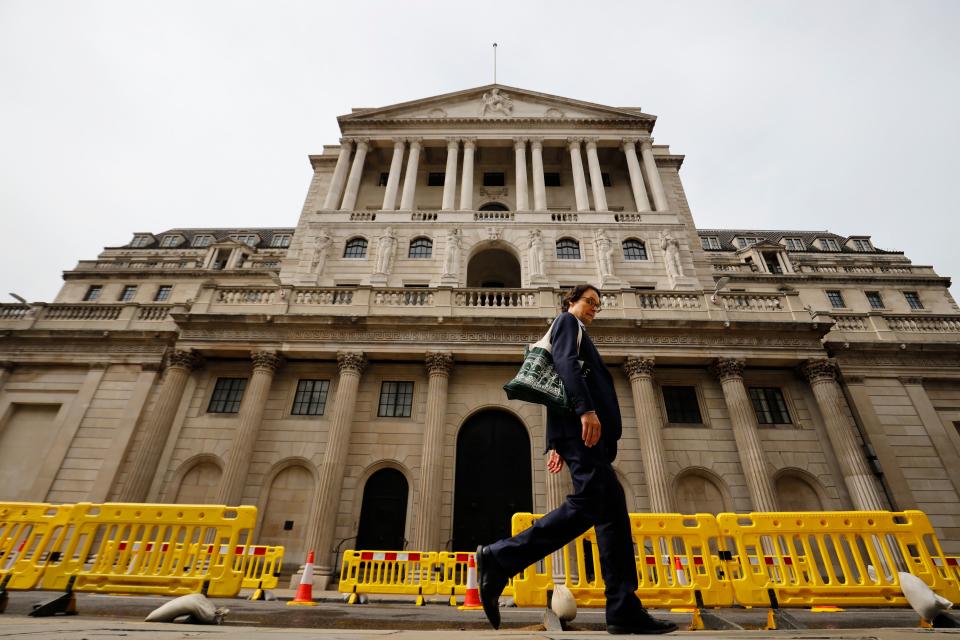Bank of England economist says UK is set for V-shaped recovery

Bank of England chief economist Andy Haldane said on Tuesday that “early” evidence continued to indicate that the UK economy was set for a rapid V-shaped recovery.
“There is a debate about which letter of the alphabet will best describe the path of the economy,” Haldane said, noting that there was scepticism about the swift recovery predicted in the central bank’s May Monetary Policy Report.
“It is early days, but my reading of the evidence is so far, so V,” he said, speaking during an online webinar.
During a V-shaped recession, an economy suffers a sharp but short-lived period of economic contraction, which is immediately followed by a quick return to pre-crisis levels of growth.
Haldane said that several unofficial economic indicators, such as data on credit card transactions, Google searches, and measures of footfall on the high street, suggested that the UK recovery had come “sooner and faster” than any forecasters had predicted.
READ MORE: UK economy suffered biggest fall since 1979 as pandemic struck
He said that, if the recovery was to continue at this pace, then the UK economy could end up contracting by just 8% in 2020, far lower than the 17% the Bank of England had predicted in May.
Forecasters at the bank have revised their forecast for global GDP growth, suggesting a contraction of just 10% in the second quarter — a marked improvement from the previously predicted 23% contraction.
“Even relative to the scale of the fall, this is a large upward revision,” Haldane said. “One reason is because social distancing measures have been loosened more rapidly than expected.”
But Haldane said that the pace at which coronavirus restrictions were eased in the UK was broadly in line with what the Bank of England had predicted, meaning that the strong recovery thus far could indicate “underlying strength” in UK consumer spending.
Haldane also said that the evidence suggested that UK consumers were not simply bringing future spending forward.
“Looking ahead, the opening of pubs, restaurants, hotels, cinemas and other hospitality outlets on 4 July will provide further impetus to spending,” he said.
“My own market intelligence suggests considerable pent-up demand.”
READ MORE: Boris Johnson warns UK faces 'a real, real crisis' on economy
Haldane’s comments come after the Office for National Statistics (ONS) said on Tuesday that UK economic output shrunk by 2.2% in the first three months of the year, the largest quarter-on-quarter contraction in GDP in 40 years.
The final tally was worse than an earlier estimate, published in May, that said GDP contracted by 2%.
Speaking earlier this month, Bank of England governor Andrew Bailey said that the bank did not spend “any time” trying to determine the letter used to describe the shape of the economic recovery.
“We don’t want to get too carried away by this. I mean, let’s be clear, I mean, we’re still living in very unusual times,” he said, noting that a lifting of restrictions would result in a jump in economic activity.

 Yahoo Finance
Yahoo Finance 
